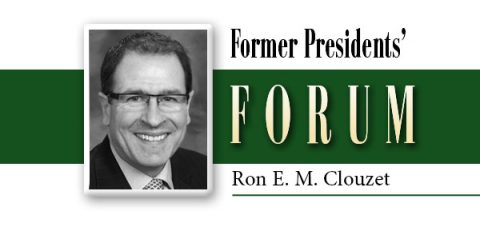
Our Praying for the Lost
Many years ago, I had a prayer experience that left an indelible impression on me. I was the pastor of a fairly large and growing congregation when a godly sister in the church asked if I had time to pray with her. It was right after the midweek prayer-meeting service. Her burden was for her two sons. If I remember correctly, one was 12 and the other 14.
The boys were good boys, but her fear was that navigating the teen years successfully would be a challenge for them. She feared their love for Jesus might grow cold in view of the many temptations and distractions for young men that age. And so, we prayed. She prayed for a few minutes, then I prayed, then she prayed again, and on we went. We were praying about 30 minutes, claiming God’s promises for guidance on behalf of her boys, when, suddenly—I was praying at the time—she put her hand on my arm and gently said: “That’s enough, Pastor. We don’t need to pray anymore. I know now God has heard our prayers.”
This was something I had never heard before, even though I had grown up in the church and had been a pastor for 10 years. Years later, I found that the Bible teaches such assurance in 1 John 5.
Praying for the Sinner
The apostle John wrote his first letter to the church while in his 90s. The first couple of generations of Christians had come and gone, and some strange ideas and doctrinal heresies were affecting the church. John wrote to remind Christians of the confidence they could have in the salvation that Jesus provided, of the allegiance they should have to God’s commandments, and the confidence they could have regarding God’s work in human beings. At the end of his first letter, he became very practical about sin (1 John 5:14–21). And he taught something very relevant to those who wish to know how to pray for the sinner:
“Now this is the confidence that we have in Him, that if we ask anything according to His will, He hears us. And if we know that He hears us, whatever we ask, we know that we have the petitions that we have asked of Him. If anyone sees his brother sinning a sin which does not lead to death, he will ask, and He will give him life for those who commit sin not leading to death. There is sin leading to death. I do not say that he should pray about that” (vss. 14–16).1
The first two verses give the instruction, and the last verse the context. We are told to pray for those whose sin “does not lead to death” (vs. 16). Don’t all sins lead to eternal death? Doesn’t Romans 6:23 say that “the wages of sin is death”? Yes—and no. Sins that are forgiven do not lead to death. Earlier in this same letter, John wrote: “If we confess our sins, He is faithful and just to forgive us our sins and to cleanse us from all unrighteousness” (1 John 1:9). And Jesus had said decades earlier that “‘every sin and blasphemy will be forgiven,’” but He added that, “whoever speaks against the Holy Spirit, it will not be forgiven’” (Matt. 12: 31, 32).
Here is the key, then. Anything can be forgiven as long as it can be confessed and repented of. The problem is with this other sin (that is, the persistent sin in which people engage): it is not confessed, and they do not want to give it up. That sin, the sin against the Holy Spirit, will not be forgiven. Why? Because the person has turned deaf ears to the voice of the Spirit on that particular sin. God can no longer influence the person for good. It is not God who is unwilling to continue working with the sinner; it is that the sinner has for so long ignored the counsel of God that he or she is immune to the Holy Spirit’s call.
If we are conscious of something we do wrong but continue to do it, ignoring the whisper of the Spirit to stop or to give it up to God, we eventually sin against the Holy Spirit. The sin that leads to death—or the sin that goes toward irreversible death—is the one we hold onto in spite of the many times the Spirit has convicted us that we should abandon it. Like a man swimming in a lake holding on to a large rock, his unwillingness to let it go will eventually drown him.
And how do we know whether or not the person we wish to pray for has already committed the sin against the Holy Spirit? (Because we’re told not to pray for such a person, since it is already too late.) We don’t know! That’s the point: God wants us to pray for every sinner, under any circumstances, since we cannot possibly know if any of them is beyond response.
The Key to Effective Prayer
This is the context for the promise found in 1 John 5:14 and 15. These verses form what Bible scholars call a chiasm,2 an inverted parallelism read from the base upward to the climax, or conclusion. The first point in the statement corresponds with, or is paralleled to, the last point in the statement. The second point mirrors the next-to-the-last point in the statement, and so on. Eventually, the climax—the main point of a statement—is found at the top center of the statement. This is illustrated below:

Read those two verses again. Do you see the parallelism between the first statement of verse 14 and the last in verse 15? First, “This is the confidence that we have in Him,” and last, “we know that we have the petitions that we have asked of Him.” So, the first statement is about having confidence in God and the last about having the petitions we made of God. It looks like this:

Now we see the next statement in verse 14 and its parallel in verse 15: “If we ask anything according to His will,” and “if we know that He hears us.” These two statements are conditionals: They start with if. The whole promise depends on these two conditions, whether we will pray according to God’s will (in the context of praying for the sinner), and whether we know God has heard our prayer. The final statement, then, is the heart of this promise, and it’s in the center of the statement. It simply reads: “He hears us.” To “hear” means to be favorably disposed to hear; it means to hear in order to answer!
The apostle John wrote in very simple Greek because Hebrew was his mother tongue, not Greek. Greek was the lingua franca of the day, the language of government, education, business, and literature across the nations of the Roman Empire, much as English is the language today that most people learn to speak across the world. But even though he wrote in Greek, he thought like a Jew. In Hebrew thought, the climax of an issue was always at the center, unlike in Western thought, which tends to be at the end.
The apostle John said, then, that God hearing is the key to our success praying for others. In our graph, it looks like this:

The first and last statements—that we have confidence in God and that we have the petitions we requested of Him—are so because of the marvelous power and grace of God. In other words, it is because of what God does that we can have confidence in Him and can have the petitions we requested. The other two statements are up to us, the believer. Have we prayed according to His will? It is always His will that people come to repentance, right? (2 Peter 3:9). Have we come to know for certain that He has heard our prayers?
When I came to understand this wonderful truth, that it is just as important to knowthat God hears our prayers as to ask them according to His will, what the sister prayed so many years ago made sense. She had been praying for her sons, of course, all their lives. And perhaps even more so at the time of our story, since she was concerned for what was just ahead of them. But for some reason, she hadn’t been absolutely certain God had heard her prayers until that night.
When you think about it, if we were to continue asking the same thing of God afterwe’ve become certain He heard our prayer, that would then be an expression of unbelief in Him, not of faith! If we’re praying according to His will—and we can be sure it’s His will that all should repent and follow Him—we must keep praying, in faith, until we know for sure God has heard our prayer. Ellen G. White, addressing the responsibility of a teacher, said: “He should learn how to come to the Lord and plead with Him until he receives the assurance that his petitions are heard.”3
We keep praying not because God is a reluctant giver but because we are reluctant to believe. If we choose to believe His mercy and His promises, we can be certain God has heard our prayers.
The Prayer of Faith Will Be Answered
The servant of the Lord also had this to say about prayer: “We must show a firm, undeviating trust in God. Often He delays to answer us in order to try our faith or test the genuineness of our desire. Having asked according to His word, we should believe His promise and press our petitions with a determination that will not be denied. God does not say, Ask once, and you shall receive. He bids us ask. Unwearyingly persist in prayer.”4
George Müller was a thief and a liar. He carried on an immoral life and drank constantly with friends. But one day, at the age of 20, at a house meeting with Christians, he suddenly understood why Jesus died on the Cross for him, and was converted. He prepared for the ministry and pastored for a few years before he decided to live completely by faith in God. He renounced his church salary and simply prayed to God for all his needs.
Eventually, he began an orphanage in Wales. Over 70 years of ministry, he cared for more than 10,000 orphans, sponsored 200 missionaries overseas, and paid hundreds of staff members without a sponsor or a foundation or any actual income. How did he raise today’s equivalent of US$150 million without ever asking anyone for money? He proved God was faithful.
When he was 39, he began praying for five of his former party friends to surrender to the love of Christ. He prayed every day for them. After 18 months, the first one turned his life to Christ. He thanked God for this and continued to pray for the other four. After another five years, the second one became a Christian. He thanked God and continued to pray daily for the other three. After six more years, the third one turned to God. He thanked God again and continued to pray for the last two friends.
Decades went by, and those friends were not converted, even though Müller had prayed for them every day. Someone finally asked him about this. Did he still believe they would be converted? His response was, “I hope in God, I pray on, and look yet for the answer.”5
Müller lived to be 93. For 44 years, he had prayed daily for two of his friends, now as old as he was, but they had not been converted. Yet he was certain God had heard his prayer. Just before Müller died, the fourth one turned to God. And shortly after Müller died, the last one did. What a joyful reunion these three men will have when Jesus comes and raises the righteous to life!
“I love the Lord,” said the psalmist, “because He has heard My voice and my supplications. Because He has inclined His ear to me, Therefore I will call upon Him as long as I live” (Ps. 116:1, 2).
NOTES AND REFERENCES
